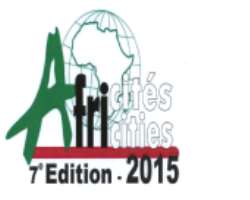Local governments in Africa drive sustainable natural resource and energy management
Cities are the building blocks in optimising resources for the development of Africa in the lead up to 2063

African cities have begun taking the lead with the investment and implementation of interventions designed to conserve natural resources and energy for generations to come.
This is as many countries around the world look to innovative ways to conserve and efficiently manage critical resources – particularly the supply of safe and clean water and energy.
The City of Johannesburg in South Africa, for example, has set aside R234 million (approximately 20 million USD) from its operating budget to be spent on environment and infrastructure services during the current financial year.
Areas that the City is investing in include the biodiversity conservation, integrated waste management and ecological infrastructure. The rehabilitation of a mine dump, air quality improvement, as well as climate change and energy diversification, are just some of a number of green initiatives that the metropolitan is focused on.
The City of Johannesburg Executive Mayor, Cllr. Parks Tau, referred to these interventions as being “just a few that demonstrate how local governments need to be pioneers in this space in order to advance the development of the African continent”.
“The demand for efficient, reliable and affordable renewable and environmentally friendly energy is a basic need for all African households and industries. Local governments need to harness all available energy resources and come up with fresh approaches and initiatives to fund new projects, and encourage investments in this space through green incentives,” Mayor Tau said.
He further said: “Cities are the building blocks in optimising resources for the development of Africa in the lead up to 2063, and it is safe to say that African cities are awake to this reality. In-line with the vision of Agenda 2063, the continent needs to intensify its mobilisation of resources to finance its development and environmental sustainability.”
Last year, the City of Johannesburg became the first municipality in South Africa to list a ‘Green Bond’ at the Johannesburg Stock Exchange (JSE). The money raised through the R1.46 billion bond, that will mature in 2024, is set to finance green initiatives such as the Bio Gas-Energy Project, and other initiatives aimed at reducing green-house gas emissions.
This innovative approach to mobilising funds for sustainable development projects will also ensure that essential environmental infrastructure and services are financed without a significant impact on the City’s purse.
Another African city which is implementing several sustainability focused projects and on the lead to promote efficient community-based waste management is Lagos in Nigeria.
The capital City’s rapid urbanisation and population growth has put a lot of pressure on its water, waste management and sanitation infrastructure. These have seen the birth of the Lagos State Water Supply Master Plan 2010 – 2020, which promotes, among others, access to potable water, reduction of waste and unaccounted water.
The plan is also designed to increase the amount of billed water, revenue collection efficiency and enhance reinvestment.
Lagos’ Sustainable Sewage and Sanitation Strategy furthermore includes the development of 10 new wastewater treatment plants. This is also as the City has a landfill gas project underway, which comprises a municipal solid waste composting facility earmarked to lead to a significant reduction of emissions.
Another African city with an exemplary environmental management, monitoring and participation strategy is Accra – the capital City of Ghana. According to the Siemens Green City Report, Accra is also strong in air quality and sanitation areas, and ranks above average for its high rate of renewable electricity and low electricity consumption.
The upcoming 7th Africities Summit, which is organised by the United Cities and Local Governments of Africa, is expected to touch on efficient resource management and renewable energy initiatives across the continent. It will be held in Johannesburg, South Africa from 29 November to 3 December.
